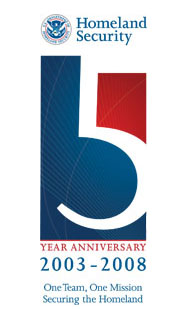Transportation Security Laboratory
The Transportation Security Laboratory is a Department of Homeland Security Federal Laboratory located at the William J. Hughes Technical Center, Atlantic City International Airport, New Jersey, and is a part of the Science and Technology Directorate of DHS.
The core mission is to enhance homeland security by performing research, development and validation of solutions to detect and mitigate the threat of improvised explosive devices. The TSL also does certification testing for Explosive Detection Systems (EDS).
TSL has a rich history of successful product development and technology life cycle management. This consists of growing technology from conception to deployment, including applied research, development, prototyping, test and evaluation, certification, systems qualification, and laboratory assessment testing.
The TSL is internationally recognized for its role in the development of standards, protocols and test articles necessary for detection technology assessments.
TSL Facility
- The TSL Campus is a 12 acre secured complex with 3 major buildings comprising office space, specialized laboratory cells, storage and warehousing. Bunkers for explosives storage are also maintained within the boundaries of the campus.
- Approximately 20,000 square feet of office space, 14,280 square feet of specialized lab cells, and over 41,000 square feet of additional space for storage, warehousing, and laboratories for trace test and evaluation, human factors studies, explosives simulant development, explosives effects studies, C4I activities, and bulk detection R&D. Current explosive bunker capacity is 2800 pounds.
- The specially designed facilities at TSL are used to perform research on explosives characteristics and chemistry, suicide detection imaging technology, communications, and human factors performance evaluations. The six specialized lab cells (4 blast resistant) are used to evaluate explosives detection equipment, weapons imaging systems, and trace equipment against an extensive library of domestic, foreign, and home made explosive compounds.
- The TSL currently houses 60 Federal and 60 contract employees with a wide variety of scientific backgrounds, including chemists, physicists, engineers, research psychologists, and explosive specialists among other technical fields.
TSL Programs, Products and Leadership
- TSL provides technological focus and leadership in the areas of bulk sensors for explosives and weapons detection, trace sensors for explosives detection, human factors, explosives effects and survivability, including aircraft hardening, communications and RFID, and access control and analysis technology.
- TSL provides global leadership in the Independent Test and Evaluation of transportation security equipment.
- TSL is organized into cross-functional product teams, supporting product development in the areas of personnel inspection, checked baggage and small parcel inspection, containerized cargo inspection, conveyance protection, and infrastructure protection.
- Over 30 major technology products have been developed, tested and deployed within the last 2 years.
- The R&D programs conducted at TSL have provided deployment-ready explosives threat solutions, including explosive detection systems (EDS), trace explosive detectors, enhanced metal detectors, suicide bomb detection technology, hardened luggage containers for aircraft, RFID tags, biometric standards, and a variety of ancillary products, such as modular bomb set training kits, high fidelity simulants for explosives, and quality control aides.
This page was last modified on August 2, 2007


